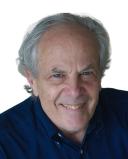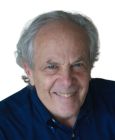Cannabis
Does THC Give You Wisdom?
Personal Perspective: New lessons learned about THC long into a medical career.
Posted May 15, 2024 Reviewed by Davia Sills
Key points
- The therapeutic interactions between doctors and cannabis patients can be extremely gratifying.
- Having time to deeply explain and then followup with cannabis patients and caregivers creates a special bond.
- Working in the world of medical cannabis is provocative and challenging as more is learned about the plant.
- People's interactions with cannabis provoke a fascinating mix of medical and spiritual benefits.
Working with patients and their families for the past nine years as a medical cannabis practitioner has been extremely gratifying in many surprising ways.
After 30-plus years in the ER and urgent care setting, providing one-time, episodic interventions and rarely seeing the same patient again, I now have accrued a roster of hundreds of ongoing patients, many of whom I have continued to treat since I began as a registered cannabis practitioner in 2016.
The conversations we have, mostly about their positive responses to using medical cannabis but about so many other aspects of life, politics, and their illnesses, have become a very important part of my own life. These dialogues have brought me closer to the patients, their families, and their caregivers and have been instrumental in my ever-deepening understanding of and appreciation for the vast array of benefits that medical cannabis provides.
It’s been a tremendously important and enriching experience and, in addition, has rekindled my interest in biochemistry, neurotransmitters, and brain anatomy, subjects that I last explored during medical school.
Most remarkable has been the array of patients I’ve met who have taken me into their lives. Advising patients about medical cannabis has brought me into contact with a stratum of people I would otherwise probably never have access to. They have ranged from corporate CEOs, attorneys, and others wanting a medical cannabis card so they wouldn’t get arrested with illicit products to people with devastating and debilitating autoimmune diseases or those with terminal cancer.
Regardless of where along the health and socioeconomic spectrum my patients lie, there has been a consistent attitude that I became aware of early on when the law legalizing medical cannabis first went into effect.
I’m referring to an openness to trying cannabis. These patients, their families, and their caregivers haven’t been taken in by the nearly 90-year-old propaganda onslaught against the plant. Either they laughed at the “killer weed” characterizations, were open-minded enough to see or know others for whom it worked, or, especially in the many elderly patients I see, they’d already tried everything else before they came to me. They clearly had not gotten relief for an array of symptoms caused by their underlying diseases and were willing to give medical cannabis a shot.
As they have seen its benefits, this has formed a unique bond between many of us, an understanding and camaraderie in that we are partaking in something still considered forbidden and illegal in many corners of the globe. Yet we know that despite that condemnation, we have access to something that, as so many of them say, is “life-changing.”
I had realized early on in the ER and Urgent Care setting the need for abbreviated interactions. The conversations and observations that transpired in those settings helped my interventions there to provide the best immediate therapeutic relief. Even though they were often brief (of necessity), these experiences also led to many of the stories I wrote and were published. Now, in this late-in-life career choice, the longer conversations that I can pursue provide me incredible insights into the workings of the cannabis plant and provoke me to try to understand what I’m being told by patients or their caregivers about their observations on what taking cannabis is like.
I seem to learn the most from my “cannabis naive” patients, those who have never used the plant. They will describe the process of finding that “sweet spot,” discovering the therapeutic regimen that gives them the relief they seek, bringing them back to where they’d been before their illness struck. And, whether this happens in a day or a week or longer, the story is similar to hearing someone describe an epiphany.
I can no longer count the times I’ve been told: “I now go through the day without pain and have to remind myself that it’s from the cannabis tincture I take every morning.”
I’m reminded of a patient who’d come to me for treatment of severe chronic back pain. When I asked, with concern, how the high THC product he took every morning for that pain affected him at work, he recounted how, as a computer programmer, he was tasked with coming up with solutions to various program challenges. He told me that using cannabis allowed him to find answers he would not have seen otherwise.
Or the successful businessman with Crohn’s disease who, before using cannabis at work, would be debilitated by his flares. Now, four or five years into his involvement in the program, when he senses a flare coming on, he uses a very well-controlled dose of his high-THC cannabis, and shortly thereafter, he dives right back into caring for his customers, pain-free and focused.
I also have a patient with USHER 3 syndrome, a degenerative disease ultimately causing deafness and blindness. She has compared her taking cannabis to being in a dark room and having the lights go on.
Several patients with severe pain syndromes, overweight and out of shape (and scheduled to have surgery for resolution of their symptoms), have found that as cannabis increasingly resolved their pain, they became more active, lost weight, had even less pain, and ultimately (for several, now six or seven years into using cannabis) have been able to avoid going under the knife.
I have another patient, a writer with severe anxiety and some cognitive issues, whom I saw recently in follow-up, a year into treatment with cannabis. She is much more focused, conversant, and happy, interacting with family and caregivers in a much more positive way, and no longer abusing alcohol.
Another, a teacher with Autism Spectrum Disorder, told me he has been able to escape the destructive route older generations in his family had chosen, using alcohol to try and treat their symptoms. Instead, he has adopted a cannabis regimen to effectively control his ASD.
I also must mention the great help my colleagues and I are seeing that cannabis can provide for many of the symptoms of dementia.
It is my hope that those of us practitioners in the world of medical cannabis can continue to educate the public and break down the stigma surrounding cannabis. Hopefully, as well, governments will move forward in rescheduling (or de-scheduling) cannabis so that more patients can benefit from its therapeutic potential.
This brings me back to my last patient and the question about THC and wisdom:
I recently saw a middle-aged man, a Hasidic Jew, with inflammatory bowel disease. He found that medical cannabis could be very helpful in controlling his IBD flares. In addition, when we were on a follow-up call a few months after he began taking medical cannabis, he asked me something.
“Dr. Weinberg,” he asked, “does THC give you wisdom?”
I was intrigued by the question and asked back, “Why, what do you mean?”
“Well,” he said, “I’ve been reading Talmud all my life, and there have always been passages I don’t understand.” He paused. “But when I take my medical cannabis, and I go back to my studies, I get it! I understand the meaning of those passages. And it’s not because I’m high! Both my wife and the rabbi agree that my insights are valid and profound.”
Knowing the many references to cannabis in ancient Hebrew (and other spiritual) texts, I shouldn’t have been surprised at his question. I was delighted, however, and am eager to pass this insight along to others as we hopefully advance our knowledge of the many benefits of the cannabis plant.




